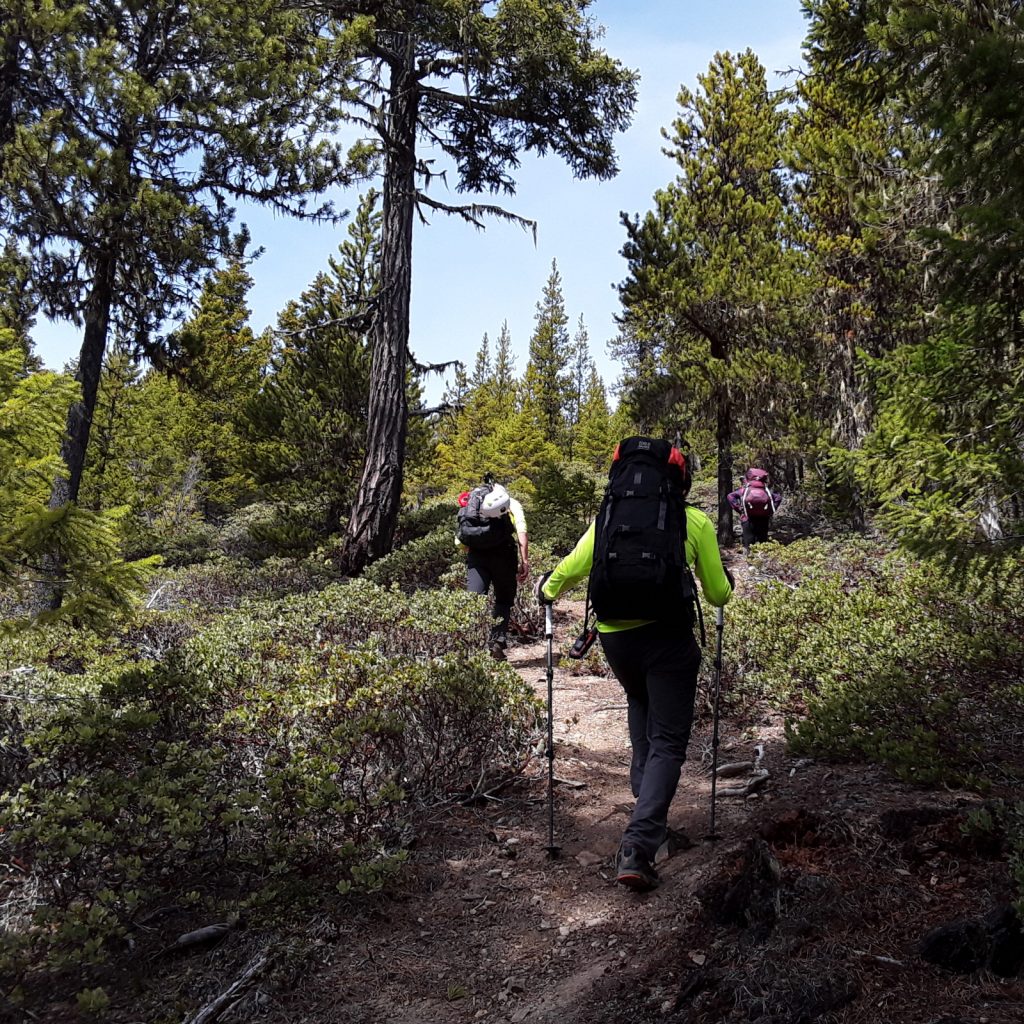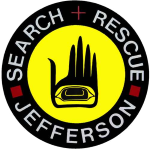When deploying with JSAR into the field for training or a SAR mission, each member is expected to carry everything they need for around 24 hours of operations and survival. What we call our “24-hour pack” is each member’s backpack packed with their personal gear and ready for quick deployment.
A 24-hour pack should weight 25-30 pounds including all personal gear. The size of the backpack is an individual choice, but 35L to 65L backpacks are typical. There needs to be space remaining for JSAR group gear (rope, rigging equipment, medical kit, insulation for search subjects, etc.) and for additional personal gear on longer assignments.

The focus here is on operational field staff — searchers headed up the trail. Volunteers working at the trailhead in support or lead roles need a slightly different set of gear and may not need it condensed into a backpack.
While each individual customizes their pack somewhat, following is JSAR’s standard for 24-hour packs.
Clothing
- Base layer top and bottoms (poly, silk, wool)
- Insulating top and bottoms (down, synthetic)
- Softshell top and bottoms (wind and abrasion resistant)
- Hardshell top and bottoms
- Head insulation (cap, helmet-compatible hoods)
- Work/climbing gloves for rope handling
- Insulating gloves, mittens (one-piece or liners and shells)
- Footwear appropriate for mission
- Gaiters
- Spare socks in sealed bag
- Reserve insulation and shell layers in pack
- Wear layers appropriate for assignment – NO COTTON
Tools and Survival
- Backpack (recommended 35-65L)
- Minimum two fire sources (lighter, stormproof matches)
- Fire starters (petroleum-soaked cotton balls or similar)
- Knife, multi-tool
- Insulating pad (seat or full length)
- Emergency shelter (space blanket, bivy sack, tarp)
- 3mm-5mm accessory cord (50′)
- Duct tape (small amount)
- Heavy-duty trash or biohazard bag
Light
- Headlamp (at least one)
- Flashlight
- Chemlights (from JSAR stock)
Navigation and communication
- Map of the search area (provided per mission)
- GPS (handheld device or mobile app)
- Compass
- Whistle
- Waterproof notepad/pen
- Sharpie permanent marker
- Flagging tape (from JSAR stock)
- Spare batteries for all devices (including phone if used for GPS)
PPE
- Helmet (available in JSAR vehicles)
- Medical gloves (from JSAR stock)
- Ear protection (from JSAR stock)
- Eye protection (safety glasses, goggles)
- Sun protection (sunscreen, sunglasses, glacier goggles)
- Insect repellant
Personal items
- Water (2 liters) and purification method
- Food that can be consumed while moving (no cooking)
- Toilet paper
- ID badge and SARGAR card
- Medical
- First-aid kit for personal use
- Tourniquet
- Aspirin
- Allergy meds
- Painkillers
- Personal meds
Typical JSAR-provided items carried per team
- Radios
- InReach and/or handheld GPS
- BLS medical kit
- Litter
- Patient padding and insulation
- Additional fluids
- 200′ or 300′ 11mm rope
- Rigging kit
- Tech-rescue Field Guide
Additional personal items depending on assignment
- Harness (required for tech-rescue personnel)
- Personal anchor, carabiners (required for tech-rescue personnel)
- Slings, prusiks, tag line, etc. (tech-rescue personnel)
- Radio chest harness (available in JSAR vehicles)
- 24″ or 36″ aluminum splint (SAM or generic)
- Trekking poles
- Traction for non-mountaineering boots (Microspikes, Yaktrax)
- Sleeping bag
- Stove and fuel
- Meals, coffee, tea
- Mountaineering boots
- Crampons
- Ice Axe (available in JSAR truck)
- Snow shoes (available in JSAR truck) or backcountry skis
- Avalanche kit (beacon, probe, shovel)
- Reflective vest (on-road assignments only, available in JSAR vehicles)
